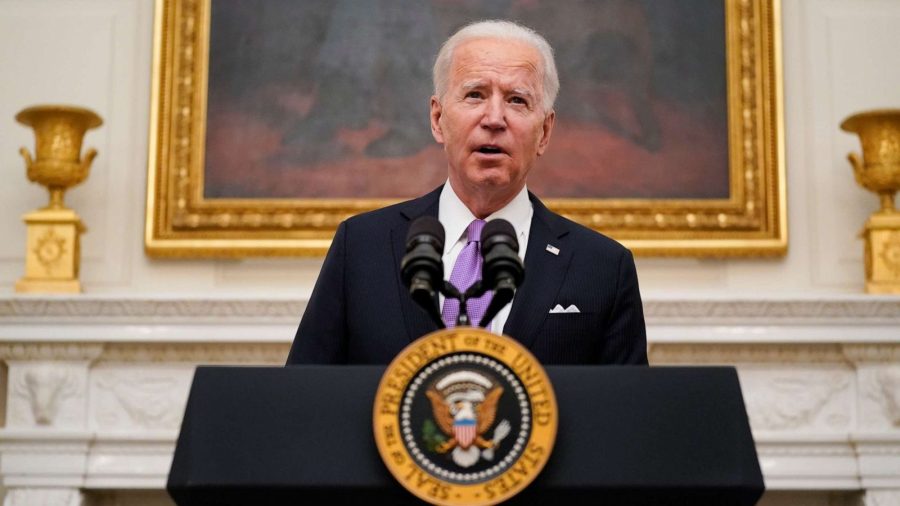Part of a flurry of activity to begin his term, President Joe Biden signed an executive order extending the suspension of federal student loan payments and interest until Oct. 1, 2021. This extension provides relief to millions who have struggled to make student loan payments during the COVID-19 pandemic. It may also be indicative of further student loan forgiveness programs promised by the Biden campaign during the 2020 presidential election.
This suspension originally started on March 27, 2020, when Congress and former President Donald Trump signed the Coronavirus Aid, Relief, and Economic Security Act, suspending student loan payments, stopping the collection of defaulted loans, and setting interest rates to zero percent.
The CARES Act is comprised of other assistance programs — including one-time payments of up to $1200 dollars, an additional $600 per week for unemployment insurance, and $350 billion dollars for small business relief loans — to help the the U.S. from falling into another recession as a result of the pandemic which led to the loss of 22 million jobs in March and April.
Although set to expire Jan. 31, 2021, the loan suspension was renewed by President Biden for an additional eight months. The issue of student loans has been a consequential topic during political debates, especially during the 2020 presidential campaign, as federal student loan debt reached an all-time high last year, nearing $1.6 trillion among more than 40 million Americans.
Over the decades, college tuition has risen dramatically making it much more expensive for current students to obtain a degree than past generations. According to figures from the College Board, from the late 1980s to 2018, the cost of obtaining a bachelor’s degree rose by 213 percent at public schools and 129 percent at private schools, adjusting for inflation.
This rise in college tuitions has been a result of a spike in demand for higher education. In turn, this rise in demand creates a cycle where the more students who want to attend college, the more the cost of college increases, and the more students borrow money.
During his campaign, Biden called for canceling $10,000 per borrower. Since his inauguration, there has been lots of speculation about how he will move forward in his plan to cancel student loans. One prediction is that the Biden administration may expand targeted loan forgiveness programs that already exist, like the one that offers relief to students who were defrauded by for-profit colleges.
Studies have shown that 90 percent of federal student loan borrowers have taken advantage of this suspension and have paused their payments since the start of the pandemic. Making payments has been hard for many, as in the U.S., starting salaries for college graduates has grown less than 1 percent over the past two years, remaining at around $50,000, causing many to work multiple jobs in order to make ends meet.
Eleanor Roosevelt College sophomore Rosemina Bazeghi explained how student loan debt affects her mindset.
“I think that student debt is one of the first issues that should be addressed,” Bazeghi said. “Student loan debt affects how a lot of students plan out their life. It affected which university I went to and I believe my debt will affect even the smallest decisions I make in my future, as it could determine how much more interest will be added if I put it off any longer.”
Student loans are now the number one cause of debt for Americans, with 70 percent of college graduates starting off their lives in debt each year. In the 1990s, student debt averaged around $10,000, but currently that amount is up to $30,000 with many borrowers owing $100,000 or more.
According to studies, cancelling student loans will generate positive outcomes for the U.S. economy. An assessment by Moody’s, a financial analysis company, found that cancelling student loans will cause a modest increase in household consumption and investment, increase small business and household formation, and in the long-term increase home ownership.
Student loans put a large burden on many graduates. A survey by Bankrate found that nearly three-quarters of millennials who have had student loan debt delayed at least one major life or financial milestone as a result including saving for emergencies, purchasing a home, paying off other debt, buying or leasing a car, saving for retirement, having children and getting married.
However, these benefits may be relatively minimal,as 90 percent of student loan debt is federal student loans which would cause the federal government to lose $85 billion. This would mean that the federal government would have to find alternative ways to restore this loss in revenue such as by adjusting the budget, printing more money or raising taxes.
Biden did not include any student debt cancellation in his $1.9 trillion relief bill, but the assurance from his administration has reassured many to remain hopeful that he will tackle this.
Photo courtesy of Alex Brandon for the Associated Press.














